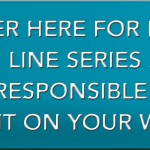Terms and conditions drafted for your unique business will fulfil numerous functions. They will

Do you have your T & C’s reviewed regularly? Do you use them as a business tool?
- protect your business
- act as a tool to keep disputes to minimum
- keep your business running smoothly
The Power of Terms and Conditions
Daniel owns a business manufacturing stainless steel kitchens for restaurants.
Crystal and Andre fit out restaurants.
Crystal and Andre send Daniel an email requesting a quote. They want Daniel to build the benches and shelves for a new restaurant they are fitting out. At the bottom of the email are Crystal and Andre’s standard terms and conditions.
Daniel sends Crystal and Andre a quote to supply the benches and shelves. On the quote are his standard terms and conditions.
Daniel negotiates with Crystal and Andre, and they agree on
- price,
- quantity,
- quality and
- time for delivery.
They didn’t think about the rest of the T & C’s in their documents.
Crystal and Andre send Daniel a Purchase Order again including their standard T & C’s.
Daniel delivers the shelves and benches to Crystal and Andre, and they accept them.

If the stainless steel benches in the kitchen are faulty who will the chef have a claim over? The installer or the manufacturer? It should all be in the T & C’s.
Daniel didn’t discuss the T & C’s on the Purchase Order with Crystal and Andre. Did Daniel accept Crystal and Andre’s terms and conditions? Did he assume his terms and conditions still governed the transaction? Whose terms and conditions govern the transaction?
The T & C’s on Daniel’s quote benefited him. The T & C’s on Crystal and Andre’s Purchase Order benefited them. Both sets of terms and conditions are inconsistent with each other.
Luckily, nothing went wrong with this transaction. Daniel continued to work with Crystal and Andre. But, this behaviour is dangerous, and one day something might go wrong.
What Could Have Gone Wrong
Many things go wrong with transactions. For example:
- the products could be defective
- the customer might not pay
- the customer might be late paying
- damage might occur to the goods during delivery
Terms and conditions should cover all these problems and more.
What other terms could have been in conflict?
- When did the title of the goods transfer to the buyer?
- Who carried the risk for the goods during the delivery phase?
- How long does the defect warranty last?
The uncertainty of whose T & C’s apply makes solving the issues more

It takes more time, money and effort to resolve an issue than it does to have T & C’s drafted and negotiated in the first place.
- difficult
- time-consuming and
- expensive to resolve.
Time spent negotiating terms and conditions for a transaction far outweigh the
- time,
- effort and
- money
spent resolving whose terms apply.
Terms and Conditions = A Contract
T & C’s of trade are a contract. For there to be a contract:
- someone must offer to sell or do something
- Someone must accept the specific offer.
- if the exact offer is not accepted, then there may be a counter offer, i.e. the customer offers up their T & C’s.
- By the parties continuing with the transaction, the contract is formed by conduct. Even though no one formally accepts an offer. It doesn’t matter which offer, that of the seller or the buyer.
What steps can you take to avoid T & C’s Uncertainty?
Don’t be in a position where you do not know which terms and conditions govern the transaction. Know what the T & C’s of the transaction mean.
Send each customer a “New Terms and Conditions of Trade”. Do this for both new and old customers. Make sure you have had these T & C’s drafted in clear, plain English. Use proactive contracts with examples, images, diagrams and timelines to help make them easier to understand. Send reminders to your customers about your terms and conditions especially when you update them. When you update your T & C’s put a notice on the front page of your website.
Get your customers to sign a copy of the T & C’s. Keep the signed copy of the terms and conditions, note when, where, how and who sent it to you. This note then becomes evidence if there is ever a dispute.
Refer regularly to your terms and conditions. During the transaction ensure they are followed. Sometimes your staff will think of an easier way around something. However, it may contradict your T & C’s and may cause a dispute. Use your terms and conditions. Don’t put them in a bottom drawer.
Put a copy of your terms and conditions on your website. Put the URL of the T&C’s on sales materials and other documents. Anything you give to customers and prospective customers should have a link to your T & C’s.
Draft a clause that states explicitly only your terms and conditions are acceptable. Any T & C’s put forward by the customer are excluded.
Make sure your
-
- order confirmations,
- delivery slips and
- tax invoices
all refer to your terms and conditions in some way. Have delivery slips signed by the person accepting delivery.
Australian Consumer Law and Terms and Conditions
Take into account the Australian Consumer Law as unfair terms maybe unenforceable against:
- consumers
- small businesses.
Draft your clauses with your customers in mind.
Safety First. Avoid the T & C’s Risks
Knowing the terms and conditions of trade for a transaction can avoid disputes. Even though they do not have the word Contract at the top of the page, T & C’s are still a contract. Pay attention to the exchange of documents and emails with your customers. They might try to sneak their T & C’s under the radar.
Using your terms and conditions as a tool and knowing what the T & C’s of each transaction are will make running your business easier and safer.
When was the last time you updated your Terms and Conditions?
Download our e-book Six Signs Your Terms and Conditions Need a Makeover.















